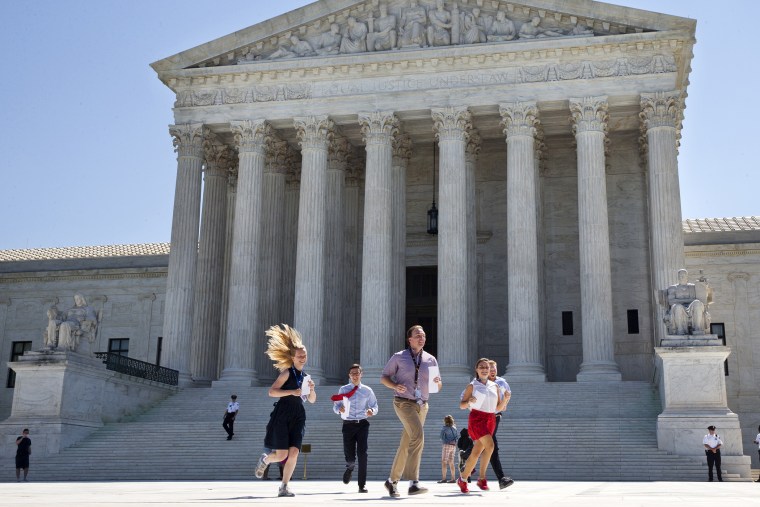Summer internship season may be coming to an end, but the global intern rebellion is just beginning.
The latest unpaid intern lawsuit — representing 40 former and current interns — is targeting Dualstar Entertainment Group, holding company for the Olsen twins’ $1 billion fashion empire. Lead plaintiff Shahista Lalani alleges that she worked 50 unpaid hours per week for several months. At one point, she says, she even had to be hospitalized for dehydration.
“Unpaid Interns vs. Olsen Twins” is only the most recent example: Over the past few years, hundreds of interns have been involved in several dozen lawsuits. The most high-profile case, filed by former interns Eric Glatt and Alex Footman against Fox Searchlight Pictures over their unpaid work on the movie Black Swan, is still being fought out in the courts. Other cases have recently settled, with interns and the firms representing them receiving an unprecdented $26 million (and counting) in settlement agreements. $7.2 million from Viacom, $5.8 from Condé Nast — it may sound like a lot of money, but it works out (at best) to a living wage for each intern for the hours worked.
RELATED: Cuomo announces emergency protections for nail salon workers
After all, that’s the point. The lawsuits — and the intern rebellion more broadly — both are and are not about the money. No one gets rich from an internship, even a well-paid one at Google (sorry — Alphabet!), and no one gets rich by suing for back pay. But fair pay for a hard day’s work is the key to restoring fairness and equal opportunity to a labor market that has become deeply skewed, especially for young people.
Working unpaid to break in is not a natural, inevitable, or universal phenomenon — in fact, it was almost unheard of just three or four decades ago. The word “intern” originally described an overworked young doctor, just out of medical school. Between the decline of unions, the gutting of labor laws, and a hypercompetitive job market, what has evolved since is a blind race to the bottom which now affects every corner of the white-collar world. The entry-level job is becoming an endangered species.
The majority of students at four-year colleges take on at least one internship before they graduate, whether they want to or not. What they do and how they are treated vary substantially from employer to employer, but two things are clear. First, there are very few situations under which a for-profit employer can legally hire unpaid interns — the only exception being short-term, bona fide training programs that meet Department of Labor criteria. (They may or may not be supervised by a school, but academic credit is no substitute for pay). Second, unpaid interns are in “legal limbo” when it comes to workplace protections against sexual harassment and various kinds of discrimination — another unacceptable consequence, which new legislation in a number of states is just beginning to rectify, of an internship economy that has gone off the rails.
RELATED: Yoga teachers: Overstretched and underpaid
Yet the most damaging effect of unpaid internships — which may make up as much as half of the total number — has to do with who they exclude. Insidiously, unpaid internships are exacerbating economic inequality and changing the complexion of many professions, with particular serious consequences in politics, media, entertainment, and non-profit work. “Getting a foot in the door” is a telling phrase, because mandating unpaid work, as employers and schools are increasingly doing, means closing the door in the face of low-income and even many middle-class youth.
It’s not just working for free — unpaid internships are a “pay to play” system. A typical internship entails spending thousands of dollars in rent, food, transportation, and daily expenses in some of the world’s most expensive cities, not to mention the opportunity costs. Nor is one internship usually enough. Community college students and high school graduates are being shut out, as are working-class students at four-year schools. In "How the University Works," Marc Bosquet notes that 80% of undergraduates in the U.S. work while they’re taking classes, with 30% working full-time or more. It is a false assumption to think that all interns are privileged, but the fact is that a significant percentage of young people cannot “pay to play” and end up effectively being barred from the white-collar world.
Enter the global intern rebellion. News of a United Nations intern living in a tent can spark instant outrage. Major universities and employers begin to rethink their policies. While other presidential candidates stick to the model of hiring unpaid interns as they raise hundreds of million of dollars, Bernie Sanders — the rare senator who paid his interns all along — sets himself apart by at least paying $12 an hour.
Not a summer too late, change is in the air.
Ross Perlin is the assistant director of the Endangered Language Alliance and the author of “Intern Nation: How to Earn Nothing and Learn Little in the Brave New Economy.”
